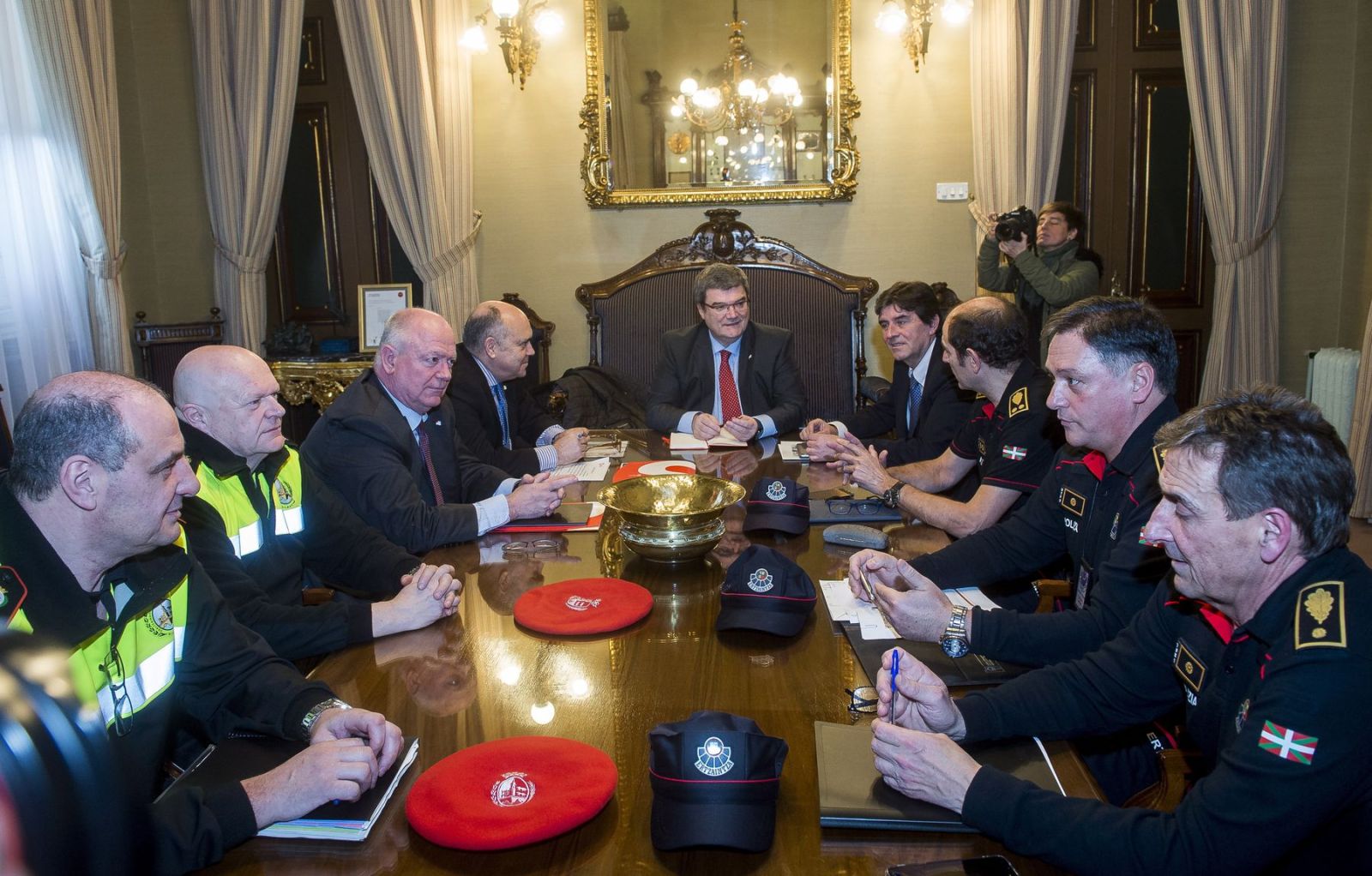

The pre-campaign has got dirty. The controversial action of the Ertzaintza has taken the spotlight and, as suggested in last week's chronicle, other everyday problems of citizenship, directly related to pocket or individual health, have been neglected. The truth is that it has not been a slow sequence of those arrested for protest to conflict. Since the Ertzaintza hit two teenage girls with pelotazos in the Carnavales de Tolosa, the shells have been injured on 3 March in Vitoria, there have also been those who have broken their leg by hitting the Ertzaintza van, and in San Sebastian, in the context of football, two other people seriously injured by the same practices. And, although it leaves the Ertzaintza competition, in a few hours six young people have been arrested in Lapurdi and more than 60 in Navarra. We haven't seen anything like that for a long time.
The political impact of these events could go in two directions: open the model police debate or go to the anecdote and raise a “conflict” between the manifesto and the police. This second has been done. Or it is the second that those in power have done. They have not made a gesture that approached asking for forgiveness. They even suggest that the responsibility lies with those who have suffered the punch. What was most grievous was Eneko Andueza, head of the PSE-EE: “I have never been beaten with a ball because I have not been in those movements.” Needless to say, these kinds of things happen to those who play with fire, but there are no big differences from what you said to what you did not say.
Security and fear machinery has been activated. Andueza feels “worried” about the clashes around football events, and Pradales says that “there is too much in society” for those who walk through conflicting streets. This pre-campaign looks like the municipal elections last May, and perhaps the infiltrate of all this is the mayor of Bilbao. The reader will take into account Juan Mari Aburto's interpretation of the same understanding of security. Attacks, use of knives, robberies, occupations, fights… It was a justification to multiply the presence of the police and cameras, although, as Mikel Eizagirre explained in this report, with comparisons, it was being proposed that crime rates in Hego Euskal Herria are very low. As Jorge Dioni López says in his book La España de las piscina, “security is addictive, there is never enough camera with the police”. Therefore, in addition to the Ertzainas, all municipal police officers must be armed by legal imperative.
The PNV is playing its cards and distributing the game in Sabin Etxea. The discourse of the government and the nationalist party is quite different. Erkoreka, who has nothing to lose, knows what its role is: to protect the ties of the Ertzaintza by attributing to the young man of Villabona the responsibility of those who participated in the “struggle”, but at the same time to expand the internal research and emphasize the most right-wing sector of the Ertzaintza to mark the centralist discourse. That is, the counselor carries a drum of bile. And, by the way, he pointed out EH Bildu’s “post-store”, which is the origin of conflicting streets. On the contrary, the acronyms of political opponents have not been used by the nationalist candidate, but Pradales has also focused on the “creators of conflicts” and tried to set the framework for the campaign aimed at voters: “I at least condemn all such incidents.” It is a way to point out paragraphs to EH Bildu or those who “do not condemn conflicts”. In other words, tell that distinguished voter: where are you on?
A few days before the elections EiTB will tell us how many “dubious” voters there are. Pradales' call is aimed at that, at pushing to decide black or white. But the previous campaign has one more month left and it seems that the Ertzaintza has put on the table too soon. Or maybe not. That is, two options: or 1) after the spring holiday we will be forgotten half and we will pass the sheet, or 2) so that it does not, incidents will have to be continued. The latter does not seem suitable for anyone, but who knows, because polemics like those of recent weeks serve to cover other problems.
Osakidetza has barely spoken in the last two weeks and little about agriculture and the primary sector. In Catalonia the electoral machinery will soon be strengthened, and that is why we will be looking more towards the summer, but it would be appropriate for the institutions of the Basque Media to make a sporadic quota. The creation of a basic income for farmers has just been proposed, which opens up an interesting debate on whether it would be possible to take the food issue out of the logic of the market and move it to the public dimension. In practice it will look… but at least it is debated with meaning.
[Every Monday, and until the elections of the Gasteiz Parliament pass, ARGIA will publish the chronicles of the political week]